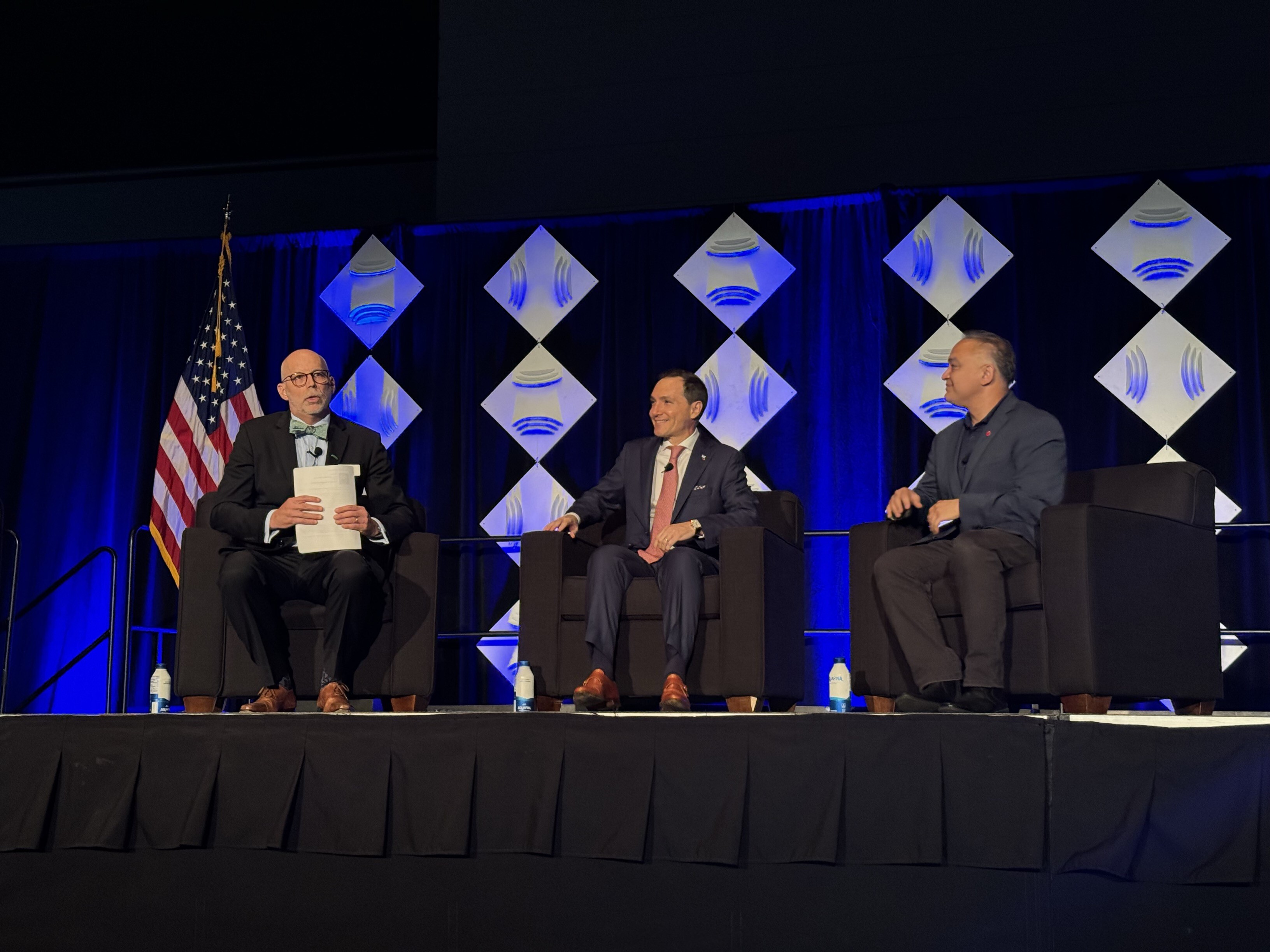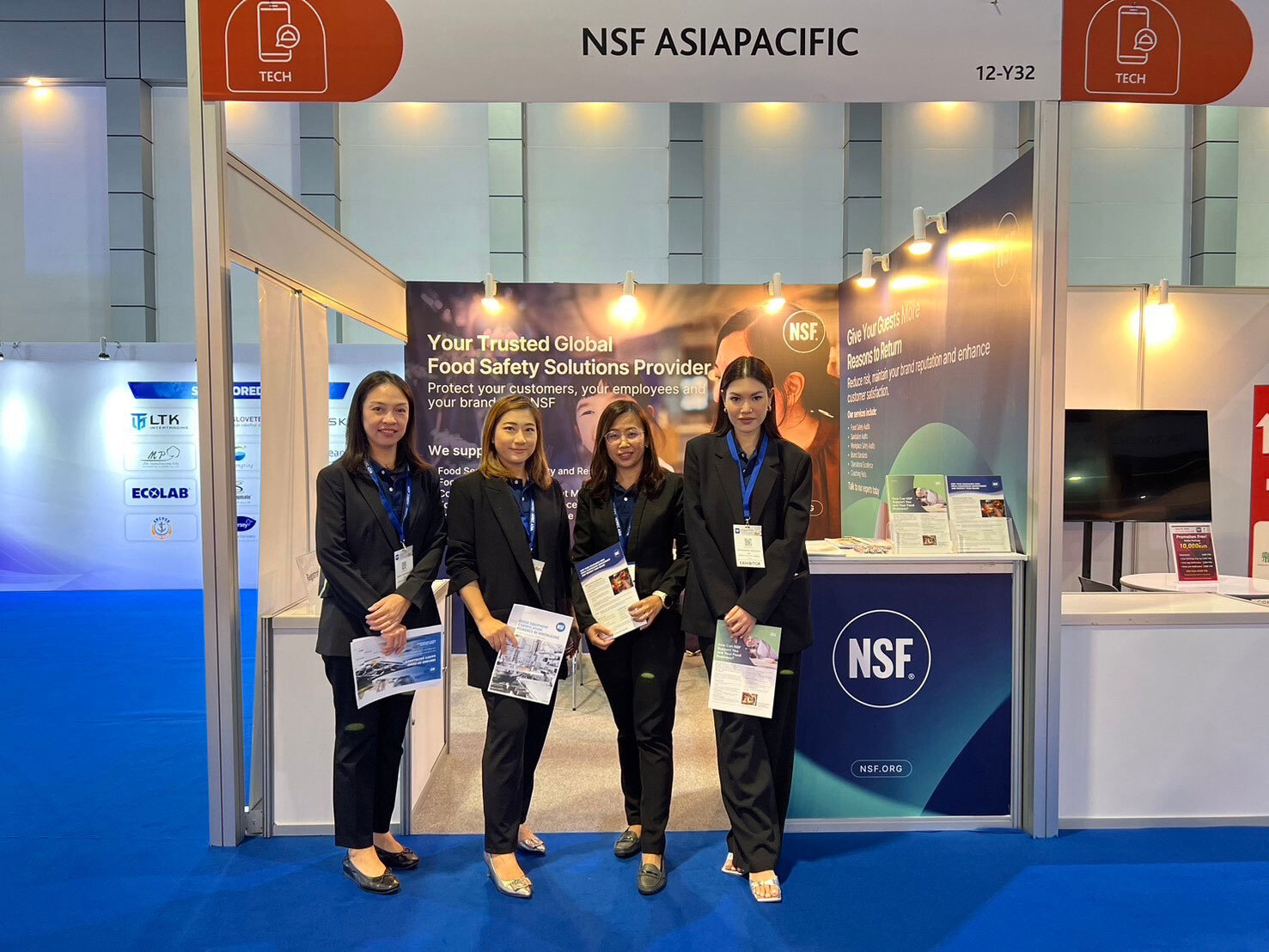NSF Announces New Protocol for Cooling Tower Water Systems to Prevent Legionellosis
ANN ARBOR, Mich. – Global public health organization NSF has published a new protocol as part of its commitment to improve building water health – NSF P453: Cooling Towers – Treatment, Operation, and Maintenance to Prevent Legionellosis. This protocol outlines proper maintenance and safety practices associated with evaporative cooling systems. It also addresses health concerns associated with commercial buildings, including health care facilities, whose residents may experience health issues such as Legionellosis from improperly maintained water systems.
“According to the Centers of Disease Control and Prevention (CDC), about 5,000 cases of Legionnaires’ disease are reported each year in the United States, which unfortunately include some deaths,” said Dave Purkiss, General Manager, Water Systems, NSF. “Legionella bacteria are found naturally in fresh water environments, like lakes and streams, but can quickly become a health concern due to lack of proper treatment, operation and maintenance in building water systems and cooling towers . Rooted in NSF’s 70-year history of protecting human health, the NSF P453 protocol establishes effective monitoring and cleanliness plans to improve building water health and reduce the number of illnesses and deaths caused by these dangerous bacteria.”
The new protocol uses the water safety plan approach recommended by the World Health Organization (WHO) to assemble a team, identify potential hazards and establish control measures to prevent the growth of Legionella bacteria. The protocol can be used by facilities to establish a management plan for the treatment, operation and maintenance of cooling tower water systems.
NSF P453 allows owners and managers of buildings with cooling tower water systems to create an easy-to-follow, actionable plan with specific means and methods to manage the risk of Legionnaires’ disease. It complies with the New York City and state regulations for cooling towers, which were developed in response to the Legionnaires’ disease outbreak in the summer of 2015. Although cooling towers are not regulated beyond New York state, NSF P453 can be applied across the United States to address the risk of Legionellosis and other diseases associated with cooling tower water systems.
This protocol was developed with input from various industry organizations and benefited from a public review comment period. NSF has additional services to assist facility operators in establishing and verifying their management plans for cooling tower water systems through education, guidance in developing plans and third-party verification audits.
For more information on NSF’s building water health related programs, contact Dann Holmes at dholmes@nsf.org or +1-734-214-6222.
Editor’s Note: Media interested in more information can contact Thomas Frey, APR, at media@nsf.org or call +1 734 214 6242.
About NSF: NSF (nsf.org) is a global independent organization that writes standards, and tests and certifies products for the water, food, health sciences and consumer goods industries to minimize adverse health effects and protect the environment Founded in 1944, NSF is committed to protecting human health and safety worldwide. With clients in more than 170 countries, NSF is a Pan American Health Organization/World Health Organization (WHO) Collaborating Center on Food Safety, Water Quality and Indoor Environment.
NSF provides risk assessments, testing, inspection and certification services for the water industry from source to tap. NSF led the development of the American National Standards for all materials and products that treat or come in contact with drinking water to help protect public health and the environment and minimize adverse health effects. In 1990, the U.S. EPA replaced its own drinking water product advisory program with these NSF standards.
Share this Article
How NSF Can Help You
Get in touch to find out how we can help you and your business thrive.

What’s New with NSF

NSF Shanghai Named Critical Site for NSF/ANSI 455 and NSF/ANSI 173 by ANSI National Accreditation Board
July 26, 2024
NSF Takes Center Stage at NEHA Annual Education Conference
July 25, 2024
NSF Asia Pacific Showcases Hospitality Solutions at THAIFEX HOREC Asia 2024 in Bangkok, Thailand
July 4, 2024